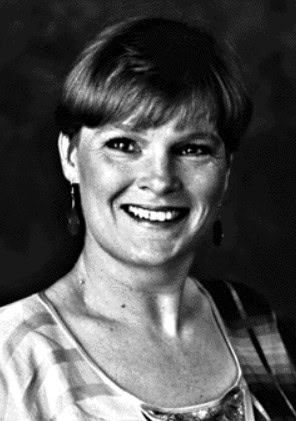
“People with disabilities are aware that when others get to know us our disability disappears as a significant feature of the relationship; similarly, when we are employed in a job or task, or participating in the daily activities of any citizen, the disability ceases to be important.”
Elizabeth Hastings (Reform, December 1993, Issue No 66)
Elizabeth Hastings: The Hero Who Changed Disability Rights Forever!
Elizabeth Hastings was a trailblazer in disability rights advocacy in Australia. Born in London in 1949, she migrated to Australia as a child. Overcoming barriers that would later define her life’s work. Hastings became the first Disability Discrimination Commissioner in Australia. Dedicated her career to advancing equality and social justice for people with disabilities. Through her relentless advocacy, she transformed public perceptions and fought to dismantle the systemic barriers faced by those living with disabilities.
Early Life and the Fight to Migrate
Elizabeth Hastings’ story began with resilience. Six months after her birth, she contracted polio during the epidemic of 1948–1949, which left her paralyzed in her legs, trunk, and one arm. Despite this, her family encouraged her independence. She used a homemade contraption to help navigate her surroundings and soon graduated to a wheelchair. Her early experiences showed a tenacity that would characterize her approach to life.
In 1957, her family made plans to emigrate to Australia under the “Ten Pound Pom” migration scheme. But the Australian Department of Immigration initially refused to accept Elizabeth due to her disability. Her father, Stuart Hastings, appealed directly to Harold Holt. Then Australia’s Minister for Immigration, who eventually granted permission for Elizabeth to migrate. Though she was required to pay the full fare. The family settled in Melbourne. Elizabeth, then eight, quickly adapted to her new surroundings, beginning her journey toward changing the way Australia viewed disability.
Education and Early Career
Elizabeth thrived academically, attending Melbourne’s Strathcona Baptist Girls’ Grammar School. Where, for the first time, she experienced a sense of equality and freedom from the stigmatization she had known in special schools. This sense of inclusion left a lasting impact. She went on to study psychology at the University of Melbourne, where she found community, support, and a place of belonging. Graduating in 1971, she joined the Department of Labour and National Service. Where she began applying her skills to social and community-focused work.
Discovering Activism and Finding Her Voice
In 1977, Elizabeth transitioned to the Counselling Service at La Trobe University, a position she would hold for 17 years. Her journey into activism began with an experience in 1978 at a psychology conference. Where she was given a brief window to share her story, following a lengthy presentation by a non-disabled woman speaking “on behalf” of those with disabilities. Frustrated by the paternalistic tone, Elizabeth responded with a powerful, authentic speech, shaking with emotion but determined to convey her perspective. The response was overwhelming, and she realized the strength of her own voice. From that moment, Elizabeth committed herself to advocating for people with disabilities.
Her activism gained momentum when she joined the Victorian planning committee for the International Year of the Disabled Person (IYDP) in 1981. Working with advertising executive Phillip Adams. She helped shift the focus of the IYDP campaign from stereotypical portrayals of “super crips” to one that advocated for equal rights and dismantling barriers. Through initiatives like the Disability Resource Centre, she helped empower disability advocacy groups, advocating for systemic changes that would offer people with disabilities equal access to all areas of life.
Becoming Australia’s First Disability Discrimination Commissioner
Elizabeth’s achievements led to her appointment as Australia’s first Disability Discrimination Commissioner in 1992. She was asked to administer the newly passed Disability Discrimination Act (DDA). A landmark piece of legislation aimed at protecting the rights of people with disabilities. As Commissioner, Elizabeth oversaw cases and initiatives designed to “break down the barriers”. That prevented people with disabilities from full participation in society. Her role went beyond legal proceedings; she was a public educator, speaking to audiences across Australia, promoting awareness, and demanding that Australia view disability rights as fundamental human rights.
Throughout her term, Elizabeth emphasized the importance of changing attitudes toward disability. She spoke passionately about the “N.Y.D.” population—the “Not Yet Disabled”—reminding able-bodied Australians that disability could affect anyone at any time, and that an inclusive society benefits everyone. Under her leadership, the DDA gained traction as a tool for change, creating a national conversation around accessibility, inclusion, and the importance of dismantling physical and social barriers.
Legacy and Later Life
After her term as Commissioner, Elizabeth continued her advocacy with the Uniting Church of Victoria, where she led the Social Justice and Responsibility Unit. Her work emphasized the principles she had always championed: equality, dignity, and human rights. In 1998, Elizabeth passed away from breast cancer, leaving behind an enduring legacy. Phillip Adams, reflecting on her impact, remarked, “No one taught me more about human rights than Elizabeth. She made me realize that they weren’t merely an issue in Burma or Afghanistan. They were missing here every time our bigotry, our buildings, or our institutions placed a barrier in a disabled person’s path.”
A Legacy of Empowerment and Change
Elizabeth Hastings reshaped the conversation on disability rights in Australia. Her life and work serve as a reminder that disability is not a label to define individuals by, but a part of the human experience deserving of respect and equality. Today, her influence is seen in the institutions, legislation, and social attitudes that recognize disability rights as human rights. Her legacy endures as an inspiration for all who advocate for inclusivity, justice, and a world where everyone has the opportunity to participate fully and equally.
Elizabeth Hastings: The Hero Who Changed Disability Rights Forever!
If you are interested in more blogs please check out our blog page.


